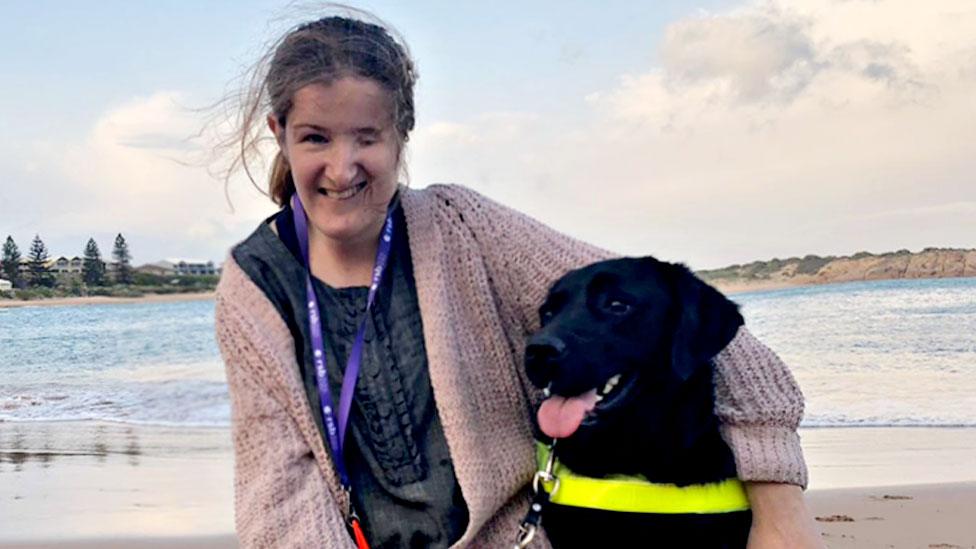Covid rules leaving visually impaired people 'totally disorientated'
- Published
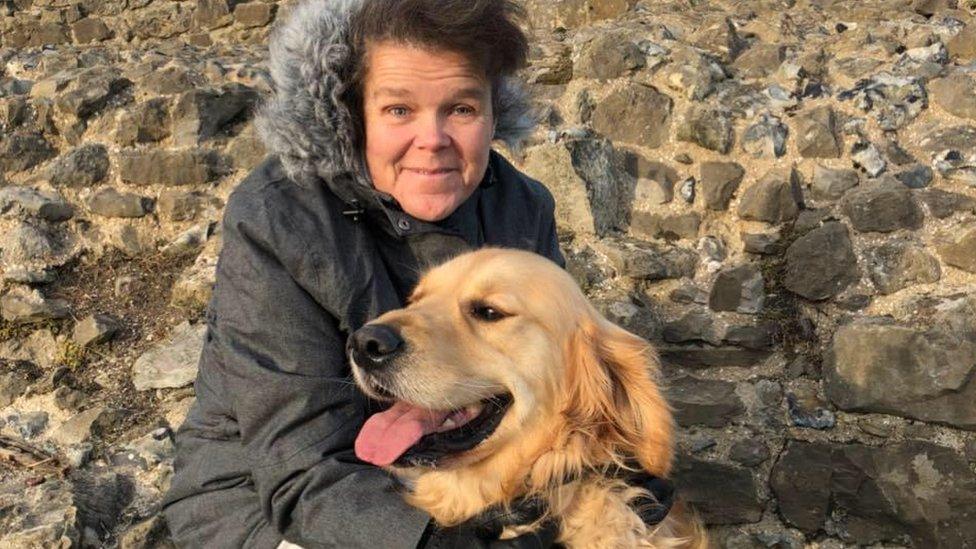
Samantha Fox said new rules were difficult for both her and her guide dog Winston
Social distancing rules, one-way systems and signs imposing customer limits in shops - while many of us have adapted to the new way of life brought on by the coronavirus pandemic, those with visual impairments say the changes have left them feeling "totally disorientated" and more needs to be done to ensure new systems are suitable to all.
The BBC has spoken to three visually impaired people living in Essex about their experiences.

'I keep away from shops'
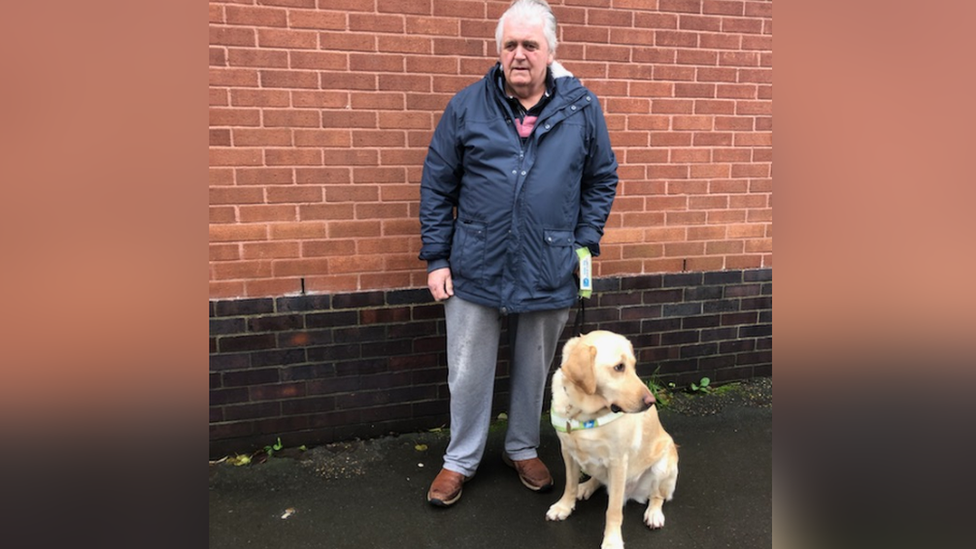
Graham Routledge says he hopes there is a change to incorporate voice-led instructions in shops and other public places
Graham Routledge, of Little Canfield, has found the new rules difficult to adjust to - so much so he avoids going out often.
"When you go out, there is a one-way system in shopping centres and people were telling me I was going the wrong way round," he said.
"You can't see the stickers on the floor or the signs on the door - it has made me keep away from shops."
Mr Routledge says he hopes there is a change and that places introduce a person at the entrance or a voice recording to inform people of the rules.
"If the signs stay, it is going to cause a problem with visually impaired people," he said.
"You need a voice telling you which way to go, there is no good having writing up on the walls or signs, I wouldn't see it and the dog can't read."
The 67-year-old said he was a very social person and that it was "hard to not be able to meet other people".
"I've spoken to several people and they have had the same problem, they don't go out on their own," he said.

'It has been horrendous'
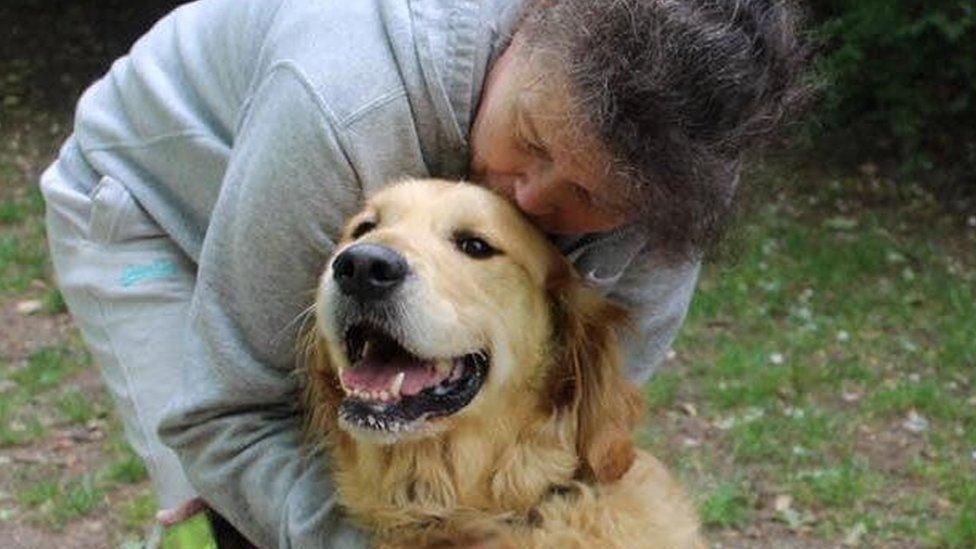
Samantha Fox said she had not been able to get out and "things have changed so much"
Samantha Fox, who lives in Hadleigh, said new signs on pavements and different layouts in supermarkets made her feel "totally disorientated".
"It has been pretty horrendous actually," she said.
"When I first went to a supermarket after lockdown, I couldn't feel my way round as so much had changed and because of social distancing, no-one was near to me to help.
"I can't stand social distancing because I don't know where the person is in front of me. It is really hard. Winston my guide dog doesn't understand social distancing either.
"My family are amazing but it is horrible for me to keep asking for help. It takes away your independence.
"I am only 50 and to be reliant on others is awful. Before coronavirus hit, I thought I had a purpose. Everything has changed."
Ms Fox agreed with Mr Routledge that there should be voice instructions to help people with visual impairments.
"Now Essex is in tier three, there are more signs giving guidance - but that doesn't mean anything to me," she said.
"There should be someone standing by the door to explain what the procedure is."

'I get really worried'
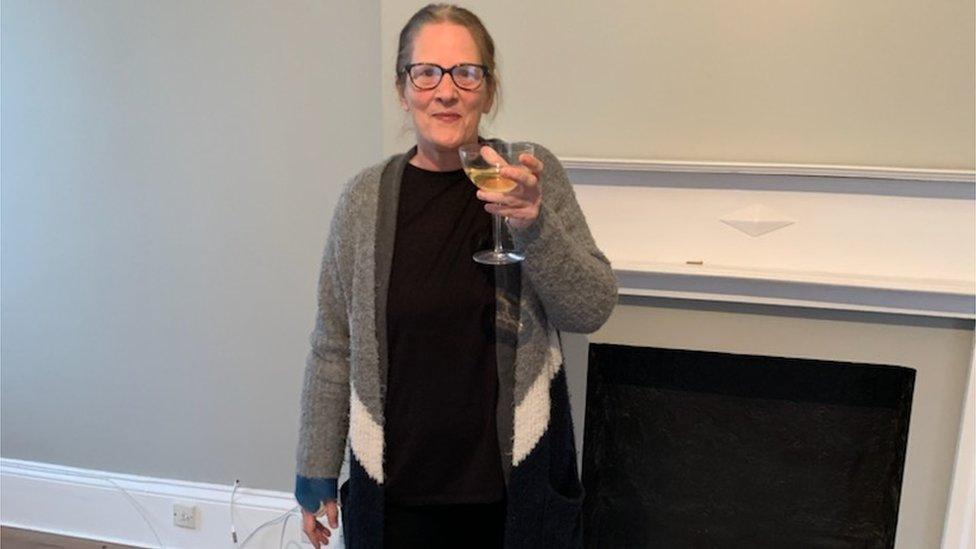
Pamela Little said people had been "quite rude" as she cannot perceive distance well
Pamela Little recently moved to Old Harlow from Wimbledon and said the new rules had made it more difficult to learn her way around.
"All of the signs and new regulations in place make it very difficult," the 59-year-old said.
"I don't know what the rules are in any of the places I go to, I get really worried.
"With every shop, they have the paper on the windows telling you how you are supposed to behave, but what if you can't see? You can't read them.
"Some shops you are supposed to have two people in there, I can't see through the glass to see who is in there. I can't see how many people are in the queues, I can't work out the distances either."
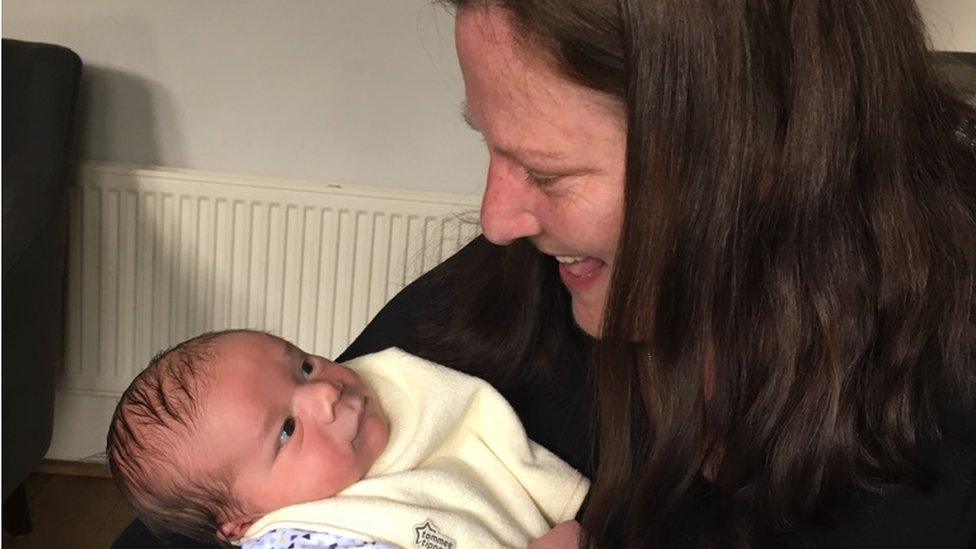
Ms Little said she used Zoom once but struggled with the technology
Ms Little said she also struggled with technology many people have relied on during the pandemic, such as Zoom, and found it "really frustrating".
"The independence that I had strived to maintain since I lost my sight has been getting worse and worse," she said.
"It has diminished so much and I am reliant on everyone else. For me that is very hard."

Find BBC News: East of England on Facebook, external, Instagram, external and Twitter, external. If you have a story suggestion email eastofenglandnews@bbc.co.uk
- Published10 November 2020
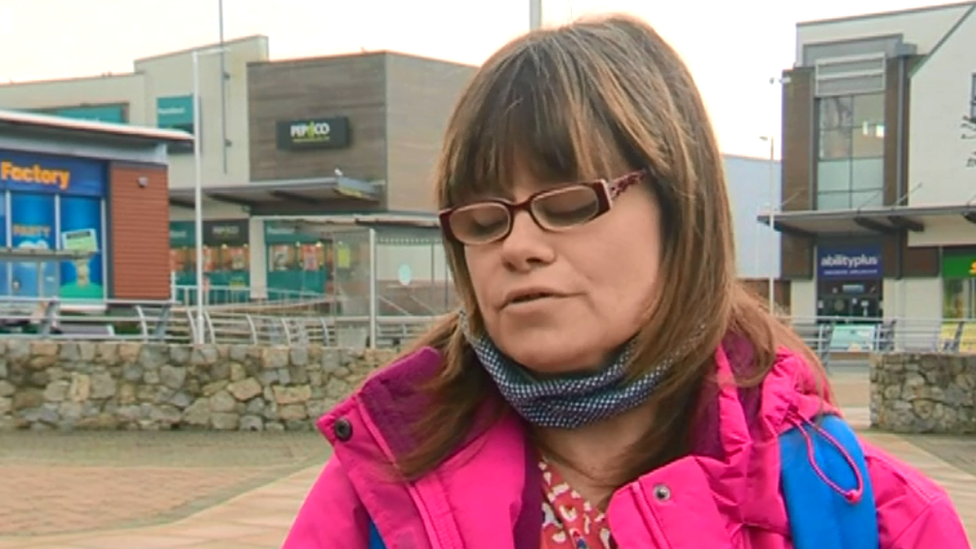
- Published10 October 2020
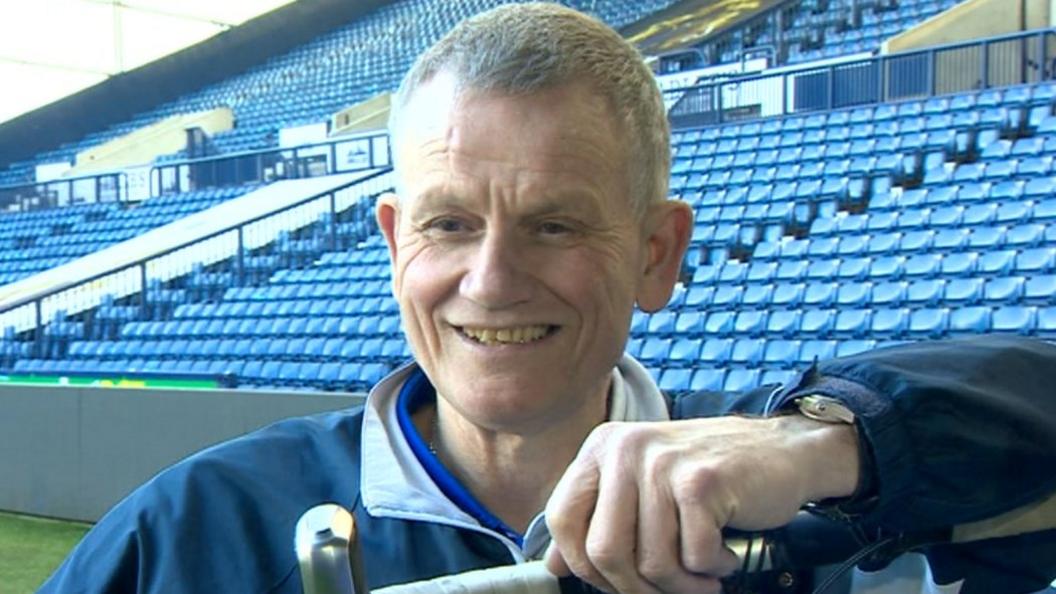
- Published29 September 2020
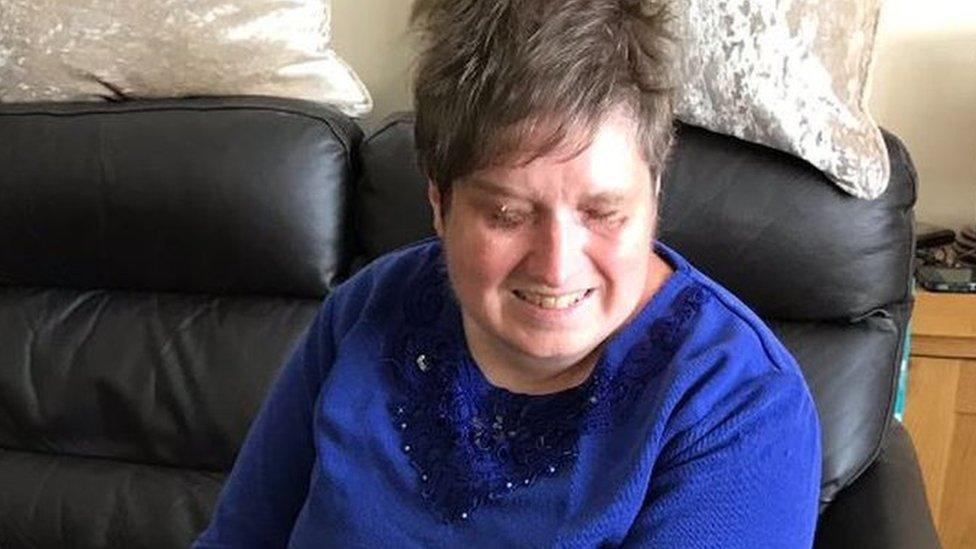
- Published29 January 2019
